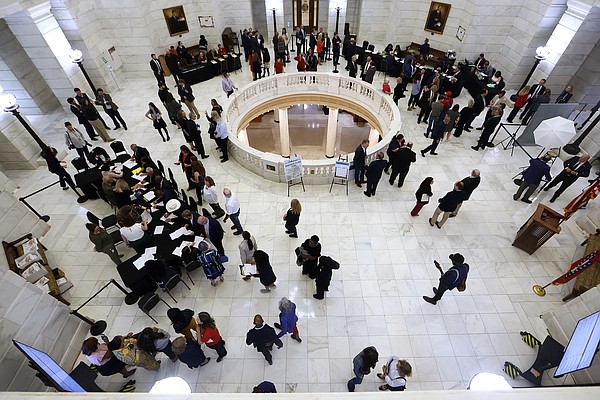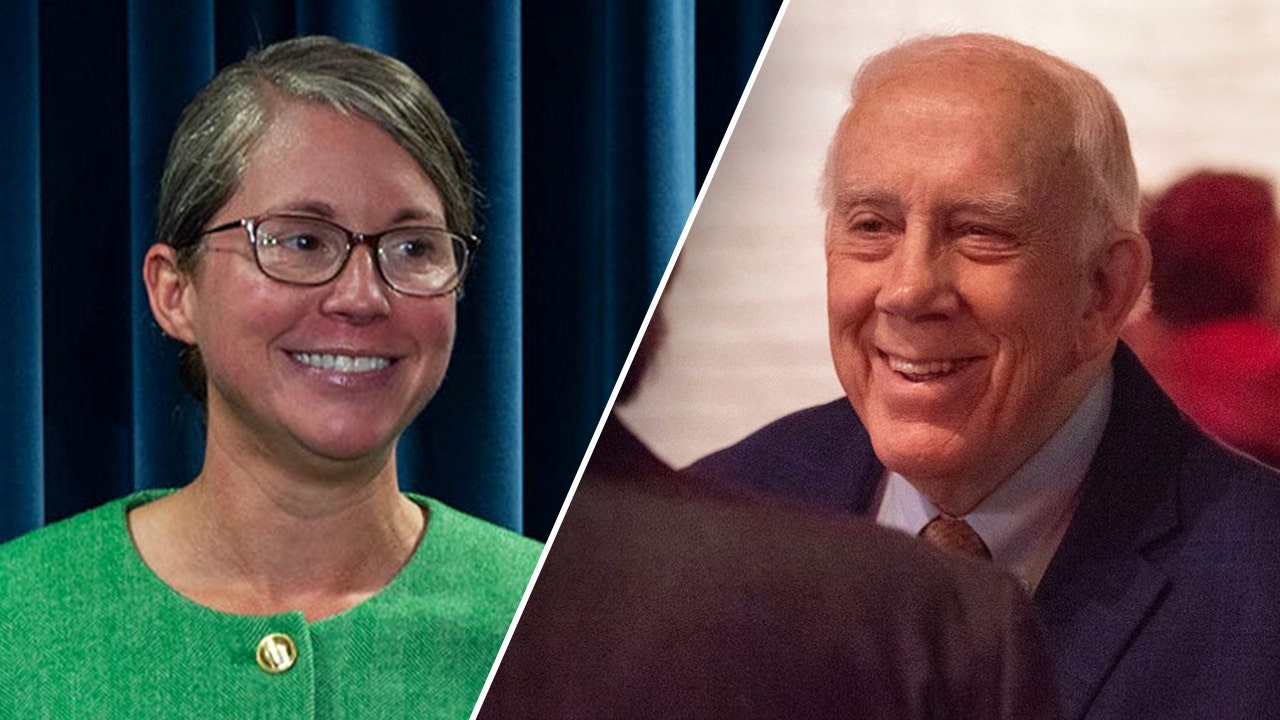A surge of Democrats filed to run for the Arkansas Legislature this month, but that’s just the beginning of what would be needed for a party that’s long been out of power to bounce back.
Democrats will contest 64 state House seats, the most the party has contested since 2012, according to Democratic Party of Arkansas Chair Grant Tennille. In total, Democrats will field 78 candidates for the House and seven for the Senate. By comparison, Republicans will run 100 candidates in a total of 86 races for House seats and 18 candidates in 16 races for the Senate.
Emboldened by what they perceive as a softening in public support for Gov. Sarah Huckabee Sanders, Democrats hope to break the Republican supermajority in the Legislature, particularly in the House.
Currently Republicans hold 82 out of 100 seats in the state House and 29 out of 35 seats in the Senate. Passing appropriation bills requires the support of 75 members of the House and 27 members of the Senate.
“More than a dozen seats that were not contested [in the] last [election] will have Democrats running this time,” Jannie Cotton, vice chair of the Democratic Party of Arkansas said. “Voters in several parts of Arkansas will have a Democrat on the ballot for the first time in many years.”
To support their legislative candidates, Democrats have set a goal of raising $25,000 in the next week, Will Watson, the strategic director for the Democratic Party of Arkansas, said in a video on X, formerly known as Twitter. So far, Democrats have raised about $13,000 toward that goal, Watson said.
For Janine Parry, a political scientist at the University of Arkansas, Fayetteville, the question is whether the high number of Democrats who filed will yield long-term gains, even if the candidates themselves don’t win this time.
“Most of the Democratic candidates may not be particularly competitive, but keeping a foot in the door might be something that positions them well when conditions change,” Parry said.
Parry compared the state’s Democratic Party to the Republican Party of Arkansas about 20 years ago, saying the Arkansas GOP often failed to run candidates in even half of the legislative races.
What changed for Republicans was the introduction of term limits, she said, which came via a constitutional amendment voters approved in 1992.
But despite Republicans reaping the early benefits of that structural change, where longtime incumbent Democratic lawmakers were barred from seeking office, the GOP failed to fully capitalize on the paradigm shift, Parry said.
The GOP benefited soon after term limits took effect in 1998, but Democrats were able to rebound with major electoral victories from 2002-2008, Parry said.
“They weren’t prepared to turn that opportunity into actual success because they didn’t have any candidates. They had no bench,” Parry said.
It wasn’t until 2012 that Republicans took control of the Legislature for the first time since Reconstruction.
For Democrats, another structural shift could come in the form of ranked-choice voting or an independent redistricting commission that would draw less partisan district lines, Parry speculated.
Seth Mays, executive director of the Republican Party of Arkansas, said the GOP’s dominance means there are only so many seats the party can pick up in 2024. In total, 133 candidates for state or federal office filed as Republicans, 97 filed as Democrats and three filed as independents, according to the secretary of state’s office.
Mays said some of the candidates the party tried to recruit for this cycle held off as they would prefer to run in non-presidential election years.
Jordan Butcher, assistant professor of political science at Arkansas State University, said Arkansas’ tendency toward one party rule is reflected in states nationwide. Unlike Congress, which can flip from control between Republicans and Democrats from cycle to cycle, state-level politics are less likely to see that kind of shift.
“Our states, they’re more homogenous. We have like minds, especially in a state like Arkansas where we’re quite small,” Butcher said. “So it’s kind of easier in one sense to have that strong, one-party threshold because we’re polarized. People are identifying strongly with a party, and we see that come through in elections as well.”
NOTABLE RACES
In House District 62, three of the candidates who ran in the last cycle are running again. The district, which includes all of Lee and Phillips counties and parts of Monroe, Desha and Arkansas counties, is majority Black and represented by Republican Mark McElroy of Tillar.
McElroy, who had to face off against fellow incumbent Republican David Tollett in 2022 as a result of redistricting, is running for reelection.
Democrat Dexter Miller, who lost to McElroy in the general election, is also running again. In the primary, he’ll face Kellee Mitchell Farris, who also ran in 2022.
Another race to watch will be House District 56 in Conway. The district saw the closest race in 2022, with incumbent Democrat Steve Magie narrowly defeating Republican Trent Minner by just 10 votes. Democrat Queen Lakeslia Mosley has filed to run against Magie in the primary, while Kim Slaughter was the sole Republican to file.
Beebe Republican Rep. Jim Wooten had no Republican or Democratic challengers. Wooten took on his party in a vocal way in the last legislative session, becoming one of the few Republicans to vote against the LEARNS Act, Sanders’ law overhauling public education.
Wooten took a strong stance against the legislation, particularly the law’s voucher program allowing students to use state dollars to attend a private or home school. In an interview with KARK-Channel 4 in March, Wooten said he was told he would “pay the price,” for his stance.
“I don’t know whether they tried and couldn’t find anyone or no one would step forward,” Wooten told the Arkansas Democrat-Gazette on Friday.
Democrat Ashley Hudson of Little Rock also will not have a Republican or Democratic opponent. Hudson ascended to the House in 2020, narrowly defeating Republican Jim Sorvillo by 24 votes. In 2022, after legislative districts were redrawn, Hudson defeated Republican Heather Turchi by 1,149 votes.
“Yeah, it totally surprised me,” Hudson said. “I assumed as a Democrat in west Little Rock that I’d always run opposed.”
While filing is over for Republicans, Democrats and independents, Libertarians will have more time to recruit candidates. They select their candidates at a convention and have until noon on March 5 to submit their paperwork.
The Arkansas Senate will only feature two primary contests. Tommy Wagner is challenging incumbent Sen. Dave Wallace in the Republican primary for Senate District 19, and Mark Silvey is running against Sen. Steve Crowell in the GOP primary for Senate District 3.
In congressional races, Democrats will challenge for all four of the state’s U.S. House seats. U.S. Rep. Steve Womack of Rogers will also have a primary challenger after state Sen. Clint Penzo of Springdale filed last week to run for the 3rd Congressional District seat.





/cdn.vox-cdn.com/uploads/chorus_asset/file/25761998/bg33.png)


















/cdn.vox-cdn.com/uploads/chorus_asset/file/25739950/247386_Elon_Musk_Open_AI_CVirginia.jpg)




